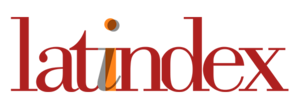Organization of knowledge and management of thesauris on the semantic web
DOI:
https://doi.org/10.33467/conci.v4i.16493Keywords:
Thesaurus; Semantic Web; Knowledge Organization System.Abstract
Introduction: The thesaurus is an important tool to represent and retrieve information in specialized areas. Its relevance is configured in the terminological control of documents. Knowledge Organization is an interdisciplinary scientific field that has been seeking, over time, to consolidate its identity. Today, search engines are the main means of finding information on the web. However, there is a certain unreliability in these search results, which means that there is dissatisfaction with the search. Objective: The aim is to provide a literary analysis on thesaurus in the contexts of Knowledge Organization and the Semantic Web, through bibliometrics and content analysis. Methodology: Literature review in the specialized area, in addition to research in the BRAPCI database, in order to investigate the bibliographic production on the thesaurus in Brazil, between 2015 and 2021. Results: The main proposition is a brief systematization of the thesaurus as a System of Knowledge Organization, as a way to relate and represent the instrument in a specific domain. Conclusions: We emphasize the importance of studies on the theoretical and epistemological bases to offer an explicit theoretical path that contributes to the development of a thesaurus management methodology for the information professional. It was possible to identify that the studies of Knowledge Organization in the context of Information Science have been gaining proportional dimensions, due to the acceleration of the use of web technologies.
Downloads
References
AMERICAN NATIONAL STANDARD/NATIONAL INFORMATION STANDARDS ORGANIZATION. ANSI/NISO Z39.19 Guidelines for the Construction, Format, and Management of Monolingual Controlled Vocabularies. Bethesda: NISO Press, 2005.
BARITÉ, M. Organización del conocimiento: un nuevo marco teórico-conceptual en Bibliotecología y Documentación. In: CARRARA, K. (org.). Educação, Universidade e Pesquisa. Marília: Unesp-Marília-Publicações; São Paulo: FAPESP, 2001.
BARROS, T. H. B; SOUSA, B. T. R. R. Organização do Conhecimento e Arquivologia: abordagens metodológicas. Informação & Informação, Londrina, v. 24, n. 2, p. 76-92, nov. 2019. Disponível em: https://www.uel.br/revistas/uel/index.php/informacao/article/view/38290 Acesso em: 25 set. 2020.
BERNERS-LEE, T. Semantic web road map. 2001. Disponível em: http://w3.org/DesignIssues/Semantic.html. Acesso em: 25 set. 2020.
BRÄSCHER, M.; CAFÉ, L. Organização da informação ou organização do conhecimento? In: LARA, M. L.G.; SMIT, J. (org.). Temas de pesquisa em Ciência da Informação no Brasil. São Paulo: Escola de Comunicação e Artes/USP, 2010.
CAMPOS, M. L. A.; GOMES, H. E. Metodologia de elaboração de tesauro conceitual: a categorização como princípio norteador. Perspectivas em Ciência da Informação, Belo Horizonte, v. 11, n. 3, p. 348-358, 2006. Disponível em: http://portaldeperiodicos.eci.ufmg.br/index.php/pci/article/view/273. Acesso em: 6 set. 2020.
CERVANTES, B. M. N. A construção de tesauros com a integração de procedimentos terminográficos. 2009. 198f. Tese (Doutorado em Ciência da Informação) - Universidade Estadual Paulista, Faculdade de Filosofia e Ciências. Marília, 2009.
CERVANTES, B. M. N. Contribuição para a Terminologia do Processo de Inteligência Competitiva: estudo teórico e metodológico. Marília, 2004. 183f. Dissertação (Mestrado em Ciência da Informação) –Universidade Estadual Paulista, Faculdade de Filosofia e Ciências. Marília, 2004.
CINTRA, A. M. M. Elementos de linguística para estudos de indexação. Ciência da Informação, Brasília, v. 12, n. 1, p. 5-22, 1983.
CINTRA, A. M. M. Estratégias de leitura em documentação. In: SMITH, J. W. Análise documentária: a análise da síntese. 2. ed. Brasília: IBICT, 1989.
CINTRA, A. M.; TÁLAMO, M. F. G. M.; LARA, M. L. G.; KOBASHI, N. Y. Para entender as linguagens documentárias. São Paulo: Polis/APB, 1994.
DAHLBERG, I. Teoria do conceito. Ciência da Informação, Rio de Janeiro, v. 7, n. 2, p. 101-107, 1978. Disponível em: http://revista.ibict.br/ciinf/article/view/115 Acesso em: 25 set. 2020.
DAHLBERG, I. Knowledge organization: its scope and possibilities. Knowledge Organization, Frankfurt, v. 4, n. 20, p.211u201022, 1999.
DODOBEI, V. L. D. Tesauro: Linguagem de representação da memória documentária, Rio de Janeiro: Inter ciência, 2002.
GUIMARÃES, J. A. C. Organização do Conhecimento: passado, presente e futuro sob a perspectiva da ISKO. Informação & Informação, Londrina, v. 22, n. 2, p. 84-98, maio/ago. 2017. Disponível em: http://www.uel.br/revistas/uel/index.php/informacao/article/view/31443 Acesso em: 25 set. 2020.
HJØRLAND, B. Fundamentals of knowledge organization. Knowledge organization, Frankfurt, v. 30, n. 2, p. 87-111, 2003.
HJØRLAND, B. What is Knowledge Organization (KO)? Knowledge organization, Frankfurt, v. 35, n. 2/3, p. 86-101, 2008.
ZENG, M. L. Knowledge organization systems (KOS). Knowledge Organization, Frankfurt, v. 35, n. 2-3, p. 160-182, 2008.
Published
How to Cite
Issue
Section
License
ConCI adopts the CC BY 4.0 License  , where licensees have the right to copy, distribute, display and perform the work and make derivative works from it, provided that due credit is given to the author or licensor.
, where licensees have the right to copy, distribute, display and perform the work and make derivative works from it, provided that due credit is given to the author or licensor.
ConCI considers that the author holds the copyright on his/her production, but the author must agree to grant the journal the right to the first publication. In addition, the author must agree that:
• in any publications in institutional repositories, book chapters or other productions resulting from works published in ConCI, due credit must be given to the initial publication.
• are authorized to publish and distribute their work online (eg, in institutional repositories or on their personal page) at any time before or during the editorial process, as this can generate productive changes as well as increase the impact and citation of the work published by ConCI.














 Licenciada por
Licenciada por 